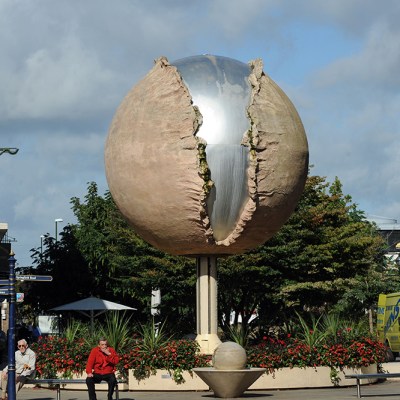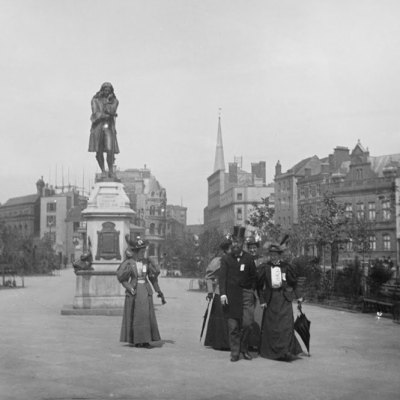A plaque commemorating the Victorian mining magnate and politician Cecil Rhodes at Oriel College, Oxford, has been granted listed status by the UK culture secretary Nadine Dorries. A statue of Rhodes, also in Oriel College, became the focus of the Rhodes Must Fall protests in 2016, with campaigners calling for its removal in light of Rhodes’s views on race and role in expanding the British Empire across southern Africa. In granting the plaque Grade II-listed status, Dorries has chosen to overlook Historic England’s judgement in 2020 that the plaque lacks the ‘richness of detail’ that would usually be requisite for listed status. The governing body of Oriel College said last year that it wanted to remove both the plaque and the statue of Rhodes (which is already Grade II-listed), but later decided not to do so because of financial and logistical complexities.
The long-running legal dispute between Russian billionaire-collector Dmitry Rybolovlev and Swiss art dealer Yves Bouvier has entered a new phase this week. On Thursday, the criminal court of appeal in Geneva overturned the dismissal, pronounced by the court’s head prosecutor last September, of the two criminal complaints for gang fraud and money-laundering Rybolovlev had filed against Bouvier in 2017 and 2019, alleging that the dealer defrauded him of $1.1bn through the sale of 38 works of art, for $2bn, between 2003–14. The head prosecutor argued last year that Rybolovlev’s complaints were ‘contradicted by many elements. The court of appeal has now determined that ‘the possible existence of a deception cannot be denied.’
An Iraqi court has overturned the conviction of a retired British geologist, Jim Fitton, who was sentenced to 15 years in jail earlier this year for antiquities smuggling. Authorities at Baghdad airport in March discovered stones and shards of pottery that Fitton had picked up during an organised tour of a site in Eridu, in the south-east of the country. He was found guilty by a criminal court of breaking a law passed in 2002 against ‘intentionally taking or trying to take out of Iraq an antiquity’, which carries a maximum sentence of the death penalty, with officials claiming that the items were archaeological pieces since they date back more than 200 years. Fitton argues that he had been unaware of the historical significance of the objects and that he had not acted with criminal intent.
The former scientific director of the consultancy firm Agence France-Muséums (AFM) has been indicted in connection with an ongoing investigation into illicit antiquities sold to the Metropolitan Museum of Art, New York, and the Louvre Abu Dhabi. On Monday, Charnier, now an adviser for the French agency Afalula that works on cultural projects in Saudi Arabia, and Louvre curator Noëmi Daucé were detained for questioning by investigators in connection with allegations that they did not address gaps in the provenance of artefacts whose acquisition by the Louvre Abu Dhabi they later advocated, while both were working for AFM. Daucé was released without charge on Wednesday; Charnier was officially indicted on Thursday on charges of laundering. Jean-Luc Martinez, former head of the Louvre who was indicted in connection with the investigation in May, was president of the scientific committee at AFM from 2013–21, while also co-chairing the acquisitions committee for the Louvre Abu Dhabi.



